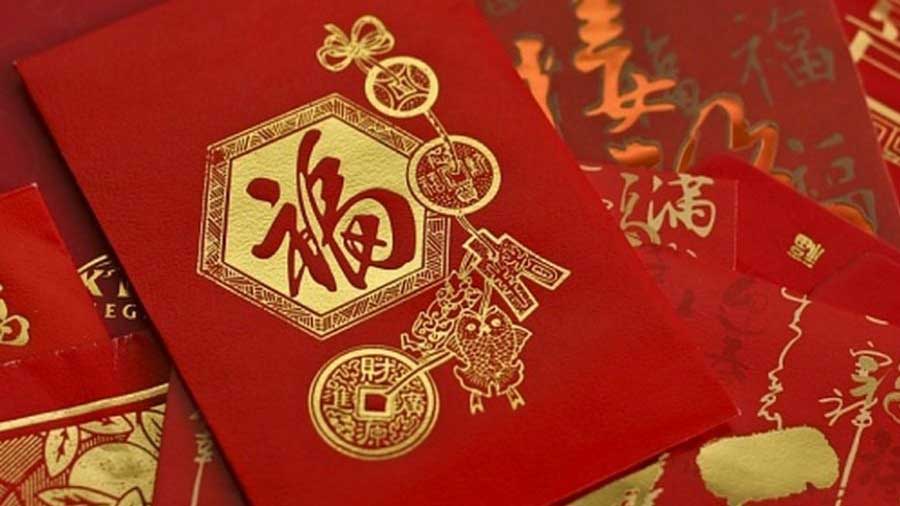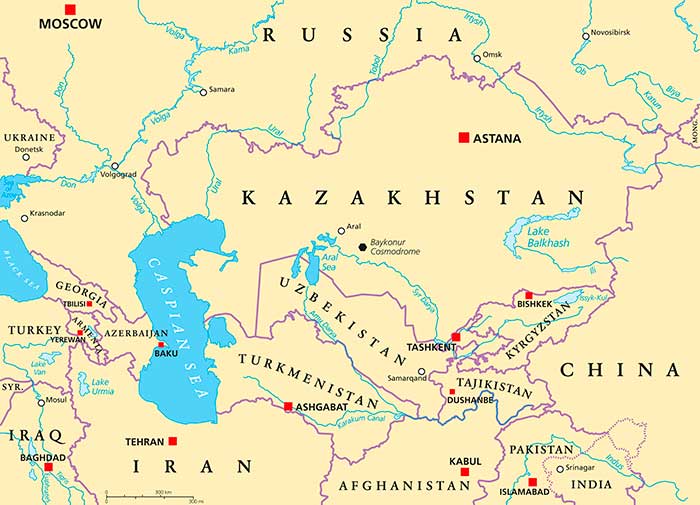China Woos Central Asia With Generous Gifts

Beijing is arranging generous gifts for the Central Asian region in preparation of the China-Central Asian summit to be held May 18-19 in Xi’an. Thus far, these have included a Visa-Free agreement being prepared for signing with Kazakhstan, while other Central Asian countries are discussing transport projects and logistics for access to the China’s Lianyungang seaport on the Yellow Sea.
The Lianyungang Port contains a Free Trade Zone and specific Central Asia trade facilities including Chinese employees with the pertinent language skills, as well as bonded warehouses and production facilities. This allows Central Asian and Chinese investors to work together to produce jointly sourced products. Rail and maritime access permits overland rail services directly from Lianyungang to China’s national rail network and onto Kazakhstan, with connections also through to Russia’s Vladivostok Port and the Trans-Siberian railway, which in turn connects with various Central Asian rail spurs.
China’s influence in Central Asia is becoming increasingly noticeable.

Kazakhstan

The Kazakhstan Ministry of Foreign Affairs has submitted for public discussion a draft government decree on the signing of an agreement between Kazakhstan and China on mutual exemption from visa requirements. In accordance with this agreement, Kazakhstanis can stay in China without a visa, and Chinese citizens in Kazakhstan for no more than 30 days from the moment of crossing the border and 90 days for a 180-day period. A visa-free regime is also allowed for tourists, private and business trips. Discussion of the draft resolution are slated to be finalized by April 26.
That agreement is scheduled to then be signed by the Foreign Ministers of the two countries, and is planned for May during the state visit of Kazakh President Kassym-Jomart Tokayev to China. The Kazakh leader will also take part in the China-Central Asia summit. The invitation sent by Chinese President Xi Jinping to the heads of the countries of the region noted that China is paying increased attention to the development of China-Kazakhstan relations.
Xi stated “The visa-free regime provides Kazakhstan with additional opportunities in business, economic cooperation and tourism. But I would like to emphasise that this is Beijing’s response to the provision of a visa-free regime for Chinese citizens, which was provided by Kazakhstan last year.”
Adil Kaukenov, Head of the Kazakh Institute for Strategic Studies, noted that “Astana hopes that other countries for which Kazakhstan is open will follow Beijing’s example, such as Japan.”
Uzbekistan

In an invitation addressed to the Uzbekistan President Shavkat Mirziyoyev, Xi recalled his 2022 visit, and announced a discussion of Central Asia’s plans at the upcoming summit. Xi noted that it is necessary to complete the construction of the China-Uzbekistan-Kyrgyzstan railway and begin the implementation of the Uzbekistan-Kazakhstan-China-Laos-Thailand-Malaysia transport corridor.
Tajikistan & Turkmenistan


In his messages to Tajikistan’s President Emomali Rahmon and Turkmenistan’s President Serdar Berdimuhamedov, Xi mentioned that the resolution of building the fourth line of the Turkmenistan-China gas pipeline, which should also pass through Tajikistan, was of key importance.
Kyrgyzstan

Xi told the Kyrgyzstan President, Sadyr Zhaparov that he attaches great importance to cooperation between the two countries. China’s projects in Kyrgyzstan include a household appliance manufacturing plant, the Kazakhstan-Kyrgyz highway, repair of the Bishkek thermal power plant and wind power plant, the renovation of irrigation projects, constructing the 500 kV Datka-Kamin transmission line, the Tajikistan-Kyrgyzstan CASA1000; the China-Kyrgyzstan-Uzbekistan highway, and many others.
According to Kaukenov; Central Asia’s main problem is that they do not have direct access to the sea, which complicates the logistics of both exporting goods and importing them. China is ready to cooperate in this direction. He stated: “Kazakhstan has access to the Chinese port of Lianyungang on the Yellow Sea, which made it possible to create large continental routes that run through Chinese territory. This opportunity, using the economic and technological achievements of China, can be obtained by other states of the region to join not only regional, but also global projects.”
Kazakhstan, he said, would like to use these routes to supply its wheat to the world market, an issue that has far-reaching consequences for global food security.
He also stated that analysts should not expect a fierce struggle for Central Asia between China and Russia, suggesting that “There are no contradictions in Russian-Chinese relations in Central Asia itself. The fundamental interests of Russia and China in Central Asia coincide. When Kazakhstan or another country in the region signs an agreement with another country, such as China, this is not done to spite Russia. It is done to improve both the political and economic positions of the countries of the region. Therefore, Russia has no questions to the countries of Central Asia, especially since Russia is now in the most difficult confrontation with the West.”
This in turn implies that suggestions that China and Russia are conflicted over Central Asia is mainly due to Western analytical mischief making, based on a lack of regional and contemporary Sino-Russo understanding.
That perspective has been taken up by Mars Sariev, an analyst with Kyrgyzstan’s Optima Bank, who has said “Central Asia is now establishing close relations with China. Against the background of the crisis in Ukraine, Beijing and Moscow have found a common language, and now we see an attempt to build a multipolar world. China is beginning to move away from its traditional cautious policy and openly demonstrate its intentions. Therefore, the countries of Central Asia now need to decide on their positions.”
Source: Victoria Panfilova for Nezavisimaya Gazeta with additional commentary by Chris Devonshire-Ellis
Related Reading





